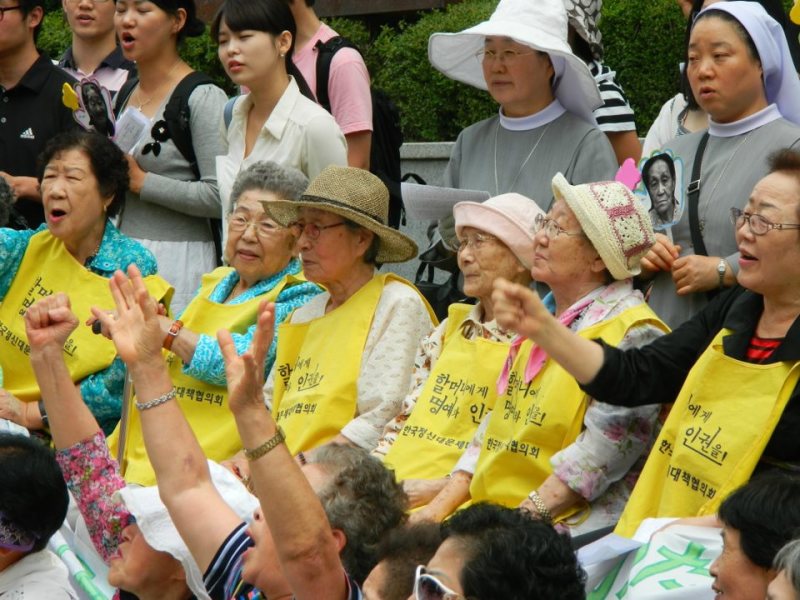

South Korea's MBC News reported that Japan's Association for Research on History, an authoritative scholarly organization stated that Japan's capturing and use of Korean and Chinese women as prostitutes for the soldiers during the Second World War is undeniable fact, and these "Comfort Women" definitely existed. The organization went as far as to directly criticize the Prime Minster Shinzo Abe and the Liberal Democratic Party.
The Association for Research on History is Japan's largest, and oldest gathering of historians and university professors on history. Professor Doru Kubo, the president of the group told MBC, "that there was compulsory mobilization by the Japanese military has been historically proven to be an undeniable fact". Among scholars, no one could deny that the Japanese military had committed these atrocious acts as they were conquering territories in China and Southeast Asia.
Despite these criticisms from scholars, the Abe administration is working even harder to deny that Japan had in fact committed these war crimes. MBC reported that the Japanese prime minister is using the term "regaining impaired reputation" to refer to this act of denying Japan's past crimes, and calling "defamation" any attempt to bring light to the truth.
During the Second World War, when Japan was waging war against China and the United States, the government mobilized women from Korea and China to serve as prostitutes for the Japanese military at their bases set up all over Asia. At first, according to historical documentation, these women were told that they will be working at factories and would be paid wages. However, in reality, they were taken to become "Comfort Women" for the Japanese soldiers.
As the war was coming to an end, and it became more and more evident that Japan might lose the conflict, many of the Korean and Chinese comfort women were either abandoned at the deserted Japanese bases or massacred. Not many were able to return to their homes when the war ended, and to this day, surviving "Comfort Women" continue to work to tell the world what had happened, and always demonstrating before the Japanese embassy in South Korea.
In response to the Abe administration of constant denial of Japan's war crimes, the Association for Research on History released a joint statement that bore the signatures of around 2,200 scholars and historians who have studied his issue ever since the 1980s.



















